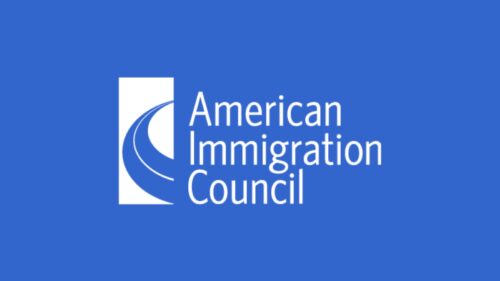WASHINGTON—A report on interior immigration enforcement released today by the American Immigration Council examines newly disclosed government data on the Trump administration’s aggressive enforcement agenda. The report, “Changing Patterns of Interior Immigration Enforcement in the United States, 2016–2018,” reveals that U.S. citizens and immigrant women have become increasingly vulnerable to immigration enforcement actions under the administration.
As the president vows to conduct mass immigration arrests and deportation, this report exposes the consequences of the administration’s unfocused enforcement approach and raises important questions about who is being impacted by the wide net of increased enforcement.
The report draws on U.S. Immigration and Customs Enforcement records of 1,199,026 encounters, 381,370 arrests, and 650,944 removals that occurred between January 2016 and September 2018. The data was obtained by the Council through Freedom of Information Act litigation.
The main findings of the report include the following:
- The number of U.S. citizens encountered by ICE jumped from 5,940 during the last year of the Obama administration to 27,540 during the first year of the Trump administration.
- Proportionally, ICE encountered and arrested more women during the first part of the Trump administration than it did at the end of the Obama administration.
- Over 85 percent of all removals under both administrations in the period examined involved individuals either with no criminal convictions or with only non-violent convictions.
- Compared to the last year of the Obama administration, the volume of both custodial arrests (those conducted in a setting such as a jail or prison) and at-large arrests (those conducted in the community) increased during the first year of the Trump administration.
- The largest percentage increases in the number of at-large arrests occurred in the ICE Areas of Responsibility in Philadelphia, Buffalo, and Phoenix.
- Under both administrations, over 70 percent of encounters and over 60 percent of arrests were conducted through the Criminal Alien Program.
The Trump administration has cast the net of immigration enforcement wider than previous administrations in its search for individuals who may be deportable from the United States. To achieve this, it has broadened the notion of “enforcement priority,” sought to eliminate humanitarian protections that had previously shielded hundreds of thousands of noncitizens from enforcement action, and expanded its enforcement activities within communities.
“Our findings reveal that there are some structural components of the enforcement machine that transcend specific administrations” said Guillermo Cantor, director of research at the American Immigration Council and co-author of the report. “However, the elimination of enforcement priorities and expansion of the enforcement net under the Trump administration has increased the vulnerability of those who may ‘look deportable,’ women, and individuals in certain regions of the country.”
“Despite all the political rhetoric about deporting dangerous criminals, our data reveal that the majority of individuals removed under both the Obama and Trump administrations either had no criminal convictions or only non-violent convictions,” said Emily Ryo, professor of law and sociology at the University of Southern California Gould School of Law and co-author of the report.
“This study makes clear that the Trump administration’s dragnet approach to immigration enforcement is not only impacting the lives of many otherwise law-abiding immigrant families, but also tens of thousands of U.S. citizens. Families are living in fear, changing the ways in which they plan and live their lives in the United States. Many U.S. citizen kids now bear the brunt of immigration enforcement activities when their parents—including those with long-standing ties to their community—become targets for deportation,” said Jorge Loweree, policy director at the American Immigration Council.
###
For more information, contact:
Maria Frausto at the American Immigration Council, [email protected]g or 202-507-7526


